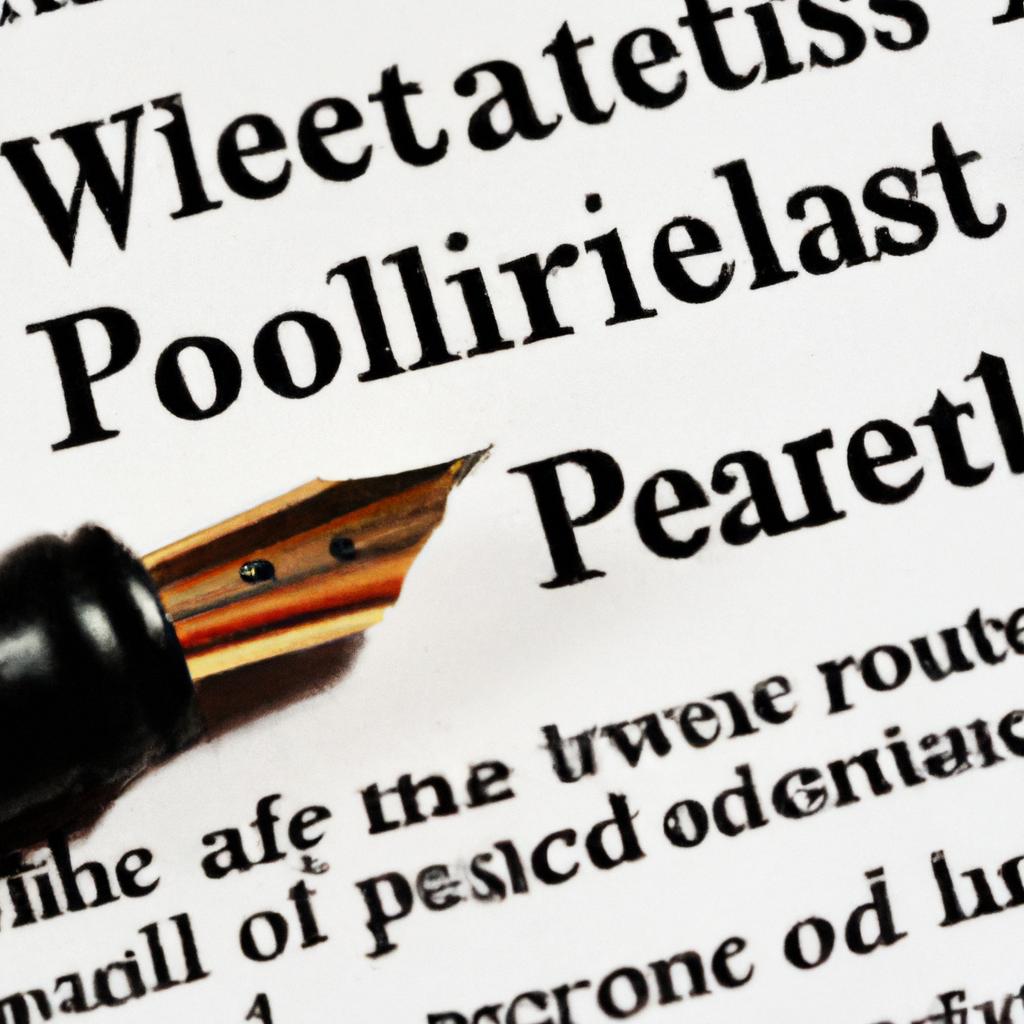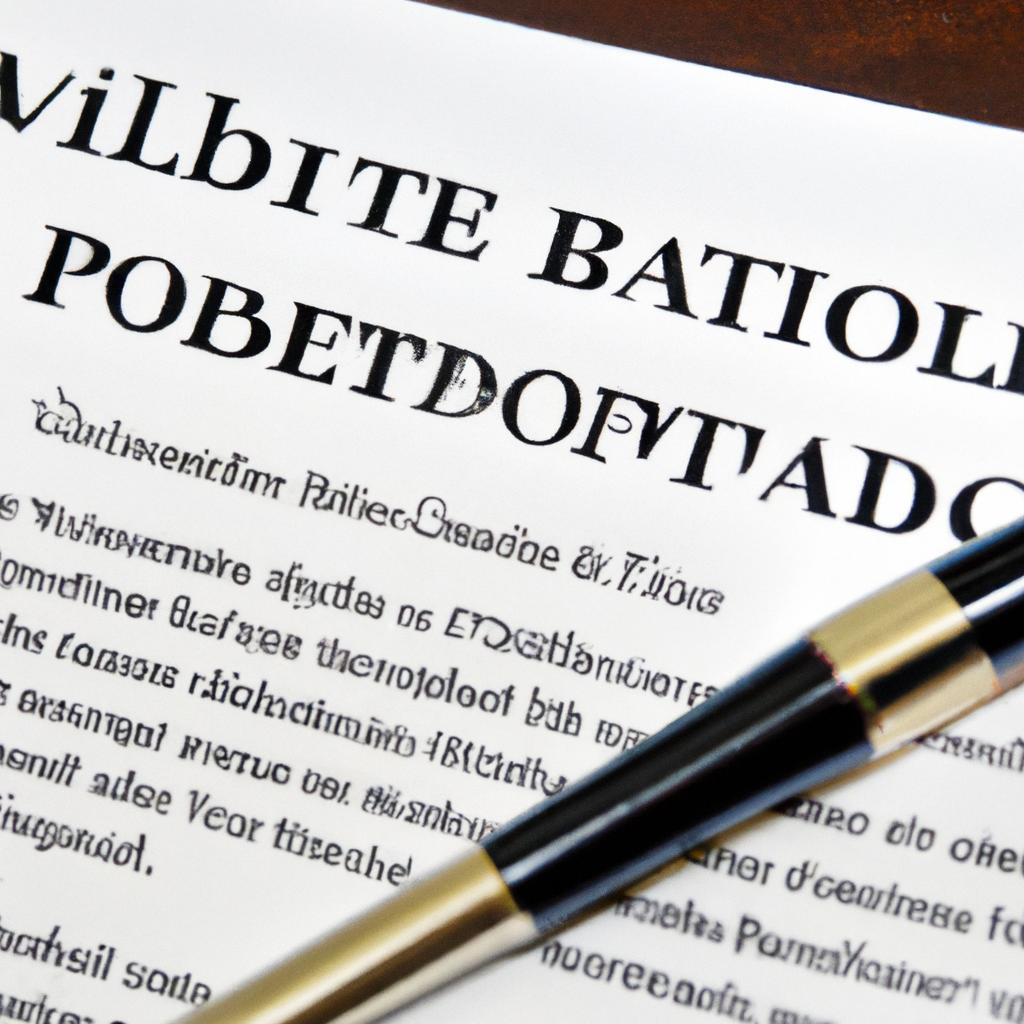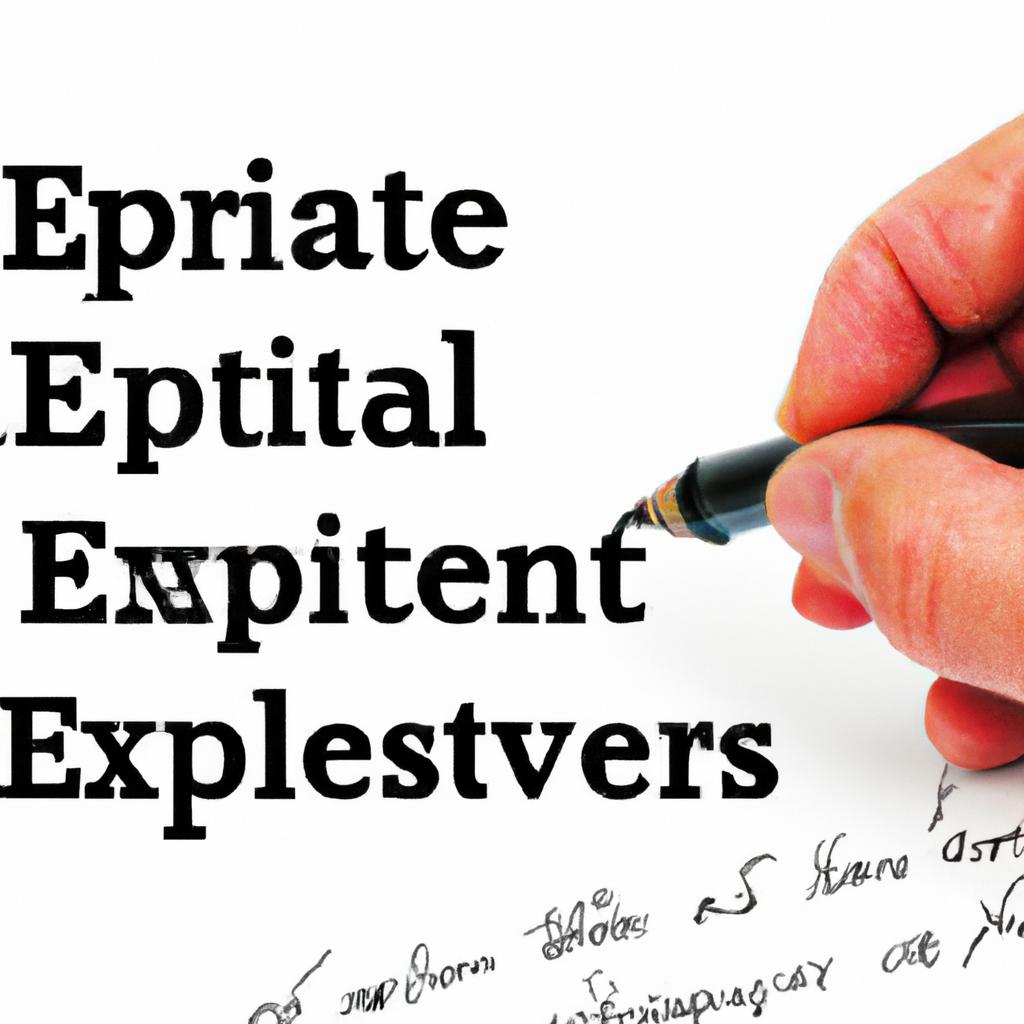In the realm of estate planning, the question often arises: is probate needed if there is a will? As seasoned practitioners in the field of estate law, we at Morgan Legal Group in New York City frequently encounter this query from clients seeking clarity on the complexities surrounding wills, estates, and probate proceedings. In this article, we aim to demystify the necessity of probate when a will is present, providing insight and guidance for those navigating the intricate landscape of posthumous asset distribution.
Determining the Necessity of Probate Proceedings When a Will Exists
When it comes to , several factors must be considered. While having a will in place typically makes the probate process smoother and more straightforward, it does not automatically eliminate the need for probate altogether. Whether probate is required will depend on a variety of factors, including the assets owned by the deceased, how those assets are titled, and the specific provisions of the will.
- Assets with named beneficiaries such as life insurance policies or retirement accounts
- Assets held jointly with right of survivorship
- Assets held in a trust
- Small estates that qualify for simplified probate procedures
In cases where the deceased owned assets solely in their name, probate may still be necessary to legally transfer ownership of those assets to the beneficiaries named in the will. Consulting with an experienced probate attorney can help you navigate the complex legal requirements surrounding probate and ensure that the deceased’s final wishes are carried out in accordance with the law.

Key Factors to Consider Before Deciding on Probate With a Valid Will
Before deciding on whether or not probate is needed when there is a valid will in place, there are several key factors that should be carefully considered. One important factor to take into account is the complexity of the estate. If the estate is relatively straightforward with few assets and no disputes among beneficiaries, probate may not be necessary. However, if the estate is complex with numerous assets, debts, or disputes, probate may be required to ensure a smooth transfer of assets according to the terms of the will.
Another factor to consider is the time and cost involved in the probate process. Probate can be a time-consuming and expensive process, with legal fees and court costs potentially eating into the estate’s assets. If avoiding probate is a priority, alternative estate planning strategies such as setting up a living trust may be a better option. Ultimately, the decision to proceed with probate with a valid will should be made after carefully weighing these key factors and consulting with experienced legal professionals who specialize in estate planning and probate law.
| Factor | Consideration |
|---|---|
| Complexity of the Estate | If the estate is straightforward, probate may not be necessary |
| Time and Cost | Probate can be time-consuming and expensive |

Understanding the Role of Probate in Administering a Will
When it comes to administering a will, many individuals wonder about the necessity of going through the probate process. The answer to the question “is probate needed if there is a will” depends on various factors and circumstances surrounding the estate. While having a will in place is a crucial aspect of estate planning, it does not exempt the estate from the probate process.
Probate is the legal process of validating a will and distributing the assets of the deceased according to their wishes. It serves as a mechanism for resolving any disputes, paying off debts, and transferring assets to beneficiaries. Some key points to consider regarding the role of probate in administering a will include:
- Legal Authority: Probate gives legal authority to the executor named in the will to act on behalf of the estate.
- Creditor Notification: Probate provides a structured process for notifying creditors and addressing any outstanding debts of the deceased.

Expert Recommendations on Handling Probate Matters When a Will is Present
When a will is present, it does not necessarily mean that probate is not needed. Probate is the legal process of validating a will and distributing the assets of the deceased according to their wishes. Even if a will is present, it still needs to go through probate to ensure that all legal requirements are met.
Here are some :
- Consult with an experienced probate attorney: A probate attorney can guide you through the process of probate, ensure that all legal requirements are met, and help you avoid potential pitfalls.
- Review the will carefully: It is important to carefully review the will to ensure that it is valid and to understand the deceased’s wishes regarding the distribution of their assets.
Q&A
Q: What is probate?
A: Probate is the legal process by which a deceased person’s will is validated and their assets are distributed according to their wishes.
Q: Is probate always necessary if there is a will?
A: Not necessarily. In some cases, if the deceased person’s assets are held in a trust or if their estate is small, probate may not be required.
Q: What factors determine if probate is needed even with a will?
A: The complexity of the deceased person’s estate, the types of assets they owned, and the laws of the state in which they lived can all play a role in determining if probate is necessary.
Q: What are the benefits of going through probate if there is a will?
A: Probate provides a formal legal process for the distribution of assets, which can help prevent disputes among beneficiaries and ensure that the deceased person’s wishes are carried out.
Q: Are there any drawbacks to probate even with a will?
A: Probate can be a lengthy and expensive process, and it is a matter of public record, which may not be desirable for some people. Additionally, the court may be involved in overseeing the process, which can make it more complicated.
Q: Can probate be avoided if there is a will?
A: There are strategies that can be used to potentially avoid probate, such as creating a trust or designating beneficiaries for certain assets. However, it is important to consult with an estate planning attorney to determine the best course of action based on individual circumstances.
Key Takeaways
In conclusion, while a will can provide clear instructions for the distribution of assets after your passing, probate may still be necessary to ensure that those instructions are carried out legally. Understanding the complexities of probate can help you plan effectively for the future and avoid any potential challenges for your loved ones. If you have any further questions or concerns about probate and wills, it is always a good idea to seek advice from a qualified legal professional. Thank you for reading.
 ———————–
———————–
Is Probate Needed If There Is a Will?
In the event of a loved one’s passing, the topic of wills and probate is one that can often be confusing and overwhelming for family members. Many may wonder, is probate needed if there is a will? The answer is not a simple one, as it depends on several factors. In this article, we will delve into the world of probate, explaining what it is, when it is necessary, and how having a will can affect the probate process.
What is Probate?
Probate is the legal process of administering the estate of a deceased person, which includes distributing their assets and paying off any debts they may have left behind. It is a court-supervised process that ensures the instructions laid out in the will are carried out and that all debts are settled before the remaining assets are passed down to the heirs.
When is Probate Necessary?
The need for probate varies from state to state, with some states requiring it for all estates and others having exceptions for smaller estates. Typically, probate is necessary when a person passes away without a will (intestate) or when their assets are solely in their name. If the deceased had a will, it will be submitted to probate, and the court will oversee its administration.
In cases where the deceased had a small estate, probate may not be necessary, as state laws may have provisions for the simplified transfer of assets. Additionally, if assets are held in a living trust, they may bypass probate and be distributed according to the terms laid out in the trust document.
How Does Having a Will Affect the Probate Process?
Having a will does not eliminate the need for probate, but it can make the process smoother and faster. The will names an executor, who is responsible for carrying out the deceased’s wishes as outlined in the will. If the deceased did not have a will, the court will appoint an executor, which can cause delays and possible disagreements among family members.
Another benefit of having a will is that it allows the deceased to specify who their assets will go to, preventing any conflicts or confusion among family members. Without a will, state laws will determine how assets are distributed, which may not align with the deceased’s wishes.
What Happens During Probate?
The probate process can take anywhere from a few months to a few years, depending on the complexity of the estate and any potential disputes or legal challenges. Here is a brief overview of the steps involved in the probate process:
1. Filing the Will: The first step is to submit the will to the court for probate. The executor named in the will or a family member usually handles this task.
2. Appointment of Executor: The court will review the will and appoint an executor to manage the estate’s administration.
3. Inventory of Assets: The executor must take an inventory of the deceased’s assets, including bank accounts, investments, real estate, and personal belongings.
4. Paying Debts: The executor is responsible for paying off any outstanding debts, such as outstanding taxes, mortgages, or credit card debts.
5. Distributing Assets: Once all debts have been settled, the executor can distribute the remaining assets to the beneficiaries according to the terms of the will.
Benefits of Avoiding Probate
As mentioned earlier, probate can be a lengthy and costly process, but there are ways to avoid it. Here are a few benefits of avoiding probate:
1. Cost Savings: Probate can be expensive, with legal fees and court costs taking a significant chunk out of the estate’s assets. Avoiding probate can save money that can be passed down to the beneficiaries.
2. Privacy: Probate is a public process, and all the estate’s details and distribution will be available for anyone to access. With a trust or other alternatives to probate, this information can remain private.
3. Time-Saving: Probate can take several months to complete, potentially leaving beneficiaries without access to assets they may need. Avoiding probate can speed up the process and provide beneficiaries with quicker access to their inheritance.
Practical Tips for Avoiding Probate
To avoid probate, some people choose to transfer assets to a living trust or set up joint ownership of assets, such as bank accounts and real estate. Another option is to designate beneficiaries to certain assets, such as life insurance policies or retirement accounts.
First-Hand Experience with Probate
Many individuals have first-hand experience with the probate process, and their stories can offer valuable insights. For example, someone who lost a loved one and did not have a will in place can share the challenges they faced during the probate process and how it could have been avoided with a will.
In Conclusion
In summary, probate is a court-supervised process that ensures the deceased’s assets are distributed according to their wishes and any outstanding debts are paid. Having a will does not eliminate the need for probate, but it can make the process smoother and faster. Avoiding probate can have its benefits, such as cost savings, privacy, and time-saving. However, it is essential to consult with an estate planning attorney to determine the best option for your specific situation.
Whether or not probate is needed if there is a will, it is crucial to have a will in place to ensure your final wishes are carried out and to avoid any potential conflicts among family members after your passing. Take the time to work with an experienced attorney to create a comprehensive estate plan that suits your needs and wishes. It will provide peace of mind for you and your loved ones.

